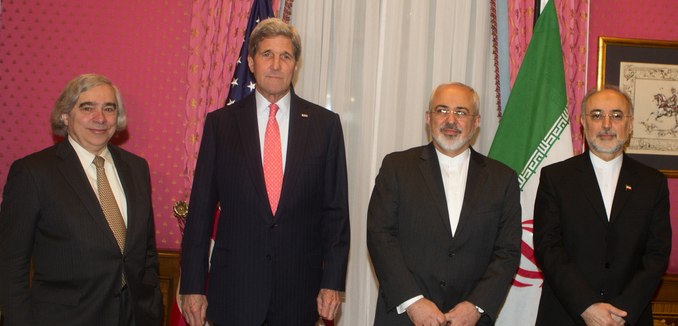In order to finalize a deal ensuring that Iran will be prevented from developing nuclear weapons, the West needs to focus on “sharpening the consequences should Tehran fail to accept the P5+1 proposals,” according an analysis published Tuesday in The Wall Street Journal.
The piece, written by Michael Singh, managing director of the Washington Institute of Near East Policy, and Simond de Galbert, a visiting fellow at the Center for Strategic and International Studies, argued that this approach is the best one to take as the June 30 deadline grows closer.
It is possible that Iran’s supreme leader, Ayatollah Ali Khamenei, would not oppose an agreement were it to prevent the International Atomic Energy Agency from conducting effective verification, reduce the level of transparency Iran is required to maintain about past and present military nuclear activities (and not make such transparency a precondition for suspending sanctions), and places weak constraints on Iran’s research and development of uranium enrichment.
But if the West insists on stronger provisions, Ayatollah Khamenei may settle for a Plan B. After all, failure to reach an agreement by June 30 or shortly thereafter would not yield immediate military action or new sanctions. Were those real threats, Iran would have greater incentive to negotiate more seriously. Instead, if past trends hold, talks are likely to continue after the deadline passes unmet, maintaining Iran’s comfort zone even without a formal extension of the 2013 Joint Plan of Action.
Iran’s sanguinity toward failure means that negotiators must focus not only on the substance of a deal but also on sharpening the consequences should Tehran fail to accept the P5+1 proposals.
Singh and de Galbert observed that Iran has benefited from the ongoing negotiations by eliminating the possibility of a military strike on its nuclear facilities, as well as by changing the West’s goal from ensuring that Iran’s nuclear program was only for peaceful purposes to “legitimiz[ing] Iran’s technical ability to break out of its obligations under the Non-Proliferation Treaty.”
To reverse Iran’s gains, the P5+1 nations should “reserve the right to ramp up sanctions and to stake out more stringent positions on matters such as Iran’s uranium enrichment,” if Iran does not agree to the P5+1 nations’ terms by the June 30 deadline. The authors argued that the P5+1 nations should insist that if no deal is reached, Iran would get no further sanctions relief past June 30. And if Iran backs out of negotiations, it should be subjected to “tougher penalties.”
Singh and de Galbert’s proposal could restore some of the West’s eroding leverage in the nuclear negotiations with Iran.
[Photo: United States Mission Geneva / Flickr ]




